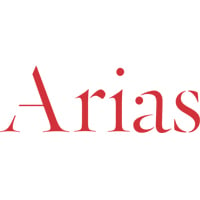
|




The legal and compliance department in Central America and the Caribbean is composed of two members: I am in charge of the department and direct responsible for more complex topics, and the junior lawyer is responsible for less complex issues, as proxies, minutes, follow up with law firms and general organisation. We also count on one external lawyer based in Costa Rica, partially dedicated to us that helps to coordinate the issues of other countries in Central America.
In the last two years the most significant transactions that the KN legal team was involved in have been closing an operation in Barbados and also, which is an ongoing and still confidential project, starting a new operation in another Caribbean country.
Even thought are not properly new regulations, the anti-money laundering regulations in Panamá and El Salvador still are demanding a lot and also the local authorities still don’t have clear their requirements and routines. For Costa Rica, the electronic invoicing implementation are an important project – important to mention that the electronic invoicing is bringing many challenges since the procedures laws haven’t changed and, thus, haven’t followed the new and modern mechanisms.
Due to the fact we are always looking for a preventive approach, we are designing a new and modern training platform for the employees and the idea is to implement it over the next 12 months. This training will consist of an online eLearning platform, through short videos (¨capsules’) and also virtual classes (‘CBTs’). The user will have the possibility to have self-pace learning and very oriented legal topics, as need by our company. Other projects to be developed over the next 12 months, which is just in an embryonic phase, is the implantation of artificial intelligence though the automation of some communications between legal and internal stakeholders.
I would say that legal technique and knowledge is a must-have for an in-house lawyer, since we cannot forget that we are lawyers and our legal advice is needed. The soft skill is, I believe what will differentiate the in-house lawyer from others. It means that the soft skill is what the in-house lawyer must have to communicate properly within the company, understand the business and act as the company need. The most important soft skill for an in-house lawyer is teamwork, in the sense have to understand other areas problem properly in other to help them by giving the best legal advice.
In all those countries the team were involved in restructuring the by-laws and also the board of director members. Due to the current governance model and also due to the new composition of the board of directors within the cluster, the team made all wording of the new clauses to be changed in the by-laws, proxies and respective shareholders approval. After that, we count on external local lawyers and law firms to confirm the legality of those changes and, after all, registration in local authorities.
More and more we are seeing in-house lawyers look for innovations, new technologies, artificial intelligence and other improvements. What in-house lawyers are actually looking for are things that can help us by giving more data, precise information and productivity, among other benefits. Nonetheless, and mainly in Central America and Caribbean countries, the governments are not following the same path and are still using the same systems, controls and processes as many and many year ago. Those countries are still stuck on paper work. As an example, some countries are still working on shareholders booking on handwriting bases and don’t have any digital control or register about the companies. Not only about transparency, compliance, corruption, anti-money laundering topics, this evolution is necessary to give more legal security and prediction to the companies in order to have more interest to invest more in these countries. Companies are willing to invest in countries that legal risks are very clear, in order to be properly mitigated. In that sense, Central America and Caribbean countries would need to modernise the legal system with systems/software in courts and local authorities, allow more digital forms and procedures, accepting and promoting the digital signatures, online procedures. In short, I would say these countries have to leave the 1980s and join the new century.